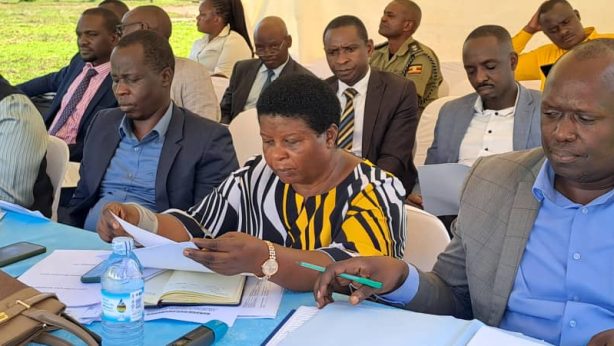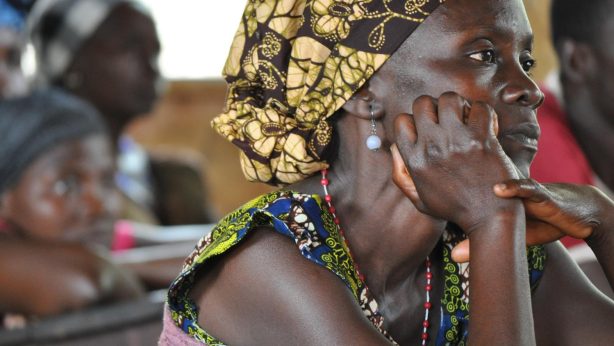Who Is Responsible for Development?
We live in societies with various social needs that should facilitate the lives of ordinary citizens. Despite ongoing efforts, there are still significant challenges hindering development in some areas compared to regions that have already made progress. The question remains: Who bears the greater responsibility, the government or the citizens themselves?
Often, when discussions arise about the underdevelopment of specific areas, citizens tend to blame the government for failing to fulfil its duties. On the other hand, the government frequently cites resource constraints as a reason for not providing these services to the large population that needs them. This situation leads to phased development, leaving some areas lagging in accessing basic services such as infrastructure, education, and healthcare.
Field visit to Pangani and Maswa
From the 11th to the 21st, team members from Twaweza travelled to the field in Pangani and Maswa to conduct an endline qualitative survey of the animation program. The objective was to assess the progress made and identify areas needing improvement. The trip was a success, with the team engaging with five villages in each district, totalling ten.
In each village, focused group discussions were conducted with five key groups: women, men, youth (both boys and girls), and village leaders. Additionally, in villages where the animation program was implemented, interviews were held with the animators. The discussions centred on three key elements: citizen agency, local government capacity, and improving service delivery.
Through these discussions, various pressing concerns emerged from the citizens themselves, including issues related to water shortages, poor road conditions, electricity access, and other critical infrastructure challenges. This direct engagement provided valuable insights into the challenges faced by communities and the necessary steps for improvement.
Development situation in Pangani
In Pangani District, villages such as Pangani Mashariki, Bweni, Mkwajuni, and Sange were visited. Despite geographical differences, the challenges faced by the residents of these villages are broadly similar. Poor road infrastructure, inadequate healthcare services, and struggles in the education sector are critical issues. In some areas, schools are over 15 kilometres away from students’ homes, forcing children to walk 30 kilometres daily to and from school. Beyond the exhaustion of such a long journey, their safety is also at risk due to the hazardous environments they pass through.
One middle-aged villager remarked, “Social services, especially the hospital, which is about 7 kilometres away, are a major challenge for us. Imagine the distance and put yourself in the shoes of someone in urgent need at night, how would you get there? I remember once when I had a medical emergency, and fortunately, my fellow villagers showed great solidarity. They carried me along with my bed from our village in Mbuyuni to the health centre in Pangani.”
Development situation in Maswa
Similarly, in Maswa District, some neighbouring villages, including Buhungukila, Mwabulimbu, Ikungu, and Mwandete, face significant challenges in accessing clean and safe drinking water. Residents are forced to rely on unsafe water sources, which puts them at a substantial risk of waterborne diseases.
A villager shared, “Not only do we fetch water from small streams, but the safety of this water is also questionable. Sometimes, you find that even animals like dogs and wild creatures use the same water. For us, the risk of disease outbreaks is ever-present.”
Access to electricity also remains a challenge. However, the government has made commendable efforts through the Rural Electrification Project (REA). Some villages have access to electricity in central trading areas, but households where most residents live have not yet been connected. Nonetheless, citizens remain hopeful that, since electricity has reached business and service centres, it will eventually extend to their neighbourhoods.
Citizens’ perspective
Many citizens are willing to participate in community development efforts. They are ready to contribute labour and engage in the initial stages of constructing public service facilities. However, they acknowledge their limited capacity and the need for government support to complete these projects successfully.
“We cannot do everything on our own. The government must support us so that essential services become available,” said one Pangani resident.
Citizens explain that they often initiate projects such as building schools or health centres, but these efforts stall due to a lack of resources and government assistance.
Who should take action?
Development is a shared responsibility between the government and citizens. The government must ensure the availability of resources and oversee the efficient implementation of community projects. On the other hand, citizens must actively participate in their development, rather than waiting for the government to do everything.
It is time to shift our mindset. Instead of asking, “When will the government help us?” we should start asking, “As citizens, what can we do to contribute to our own development?” With genuine collaboration and mutual trust between the government and citizens, development will accelerate, significantly improving the lives of communities.
This blog post was written by Kelvin Expellah, consultant, Advocacy and Engagement, Twaweza.


